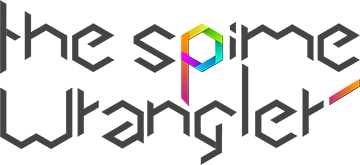The International Telecommunications Union is a standards development organization based in Geneva, Switzerland and over the past 30 years has published very important specifications for telephony and networking. Over the past decade, and especially the last 5 years, as the Internet expanded and overtook telephony as the principle vehicle for personal communications, the IETF and other standards bodies seemed to take a leadership role in communications standards.
Membership attrition drove the ITU to search for new agendas and redefine itself in the new world. Periodic examination of goals and missions is necessary in any organization, but particularly important for one whose members or customers must pay fees and seek justification for their expenses. I think that, for the ITU, the results of this process of soul searching are beginning to bear fruit.
I'm currently following the ITU Joint Coordination Activity on Internet of Things standards, which began in May 2011, and have attended two meetings of this group. Its survey of the IoT standards landscape will be very valuable to many groups when published. The motivations and the process are very complementary to the work the AR Standards Community is doing. I'm also highly impressed by and seek to attend and observe future meetings of the Internet of Things Global Standards Initiative (IoT GSI). In this group representatives from these seven ITU Study Groups work together:
- SG 2 – Operational aspects of service provision and telecommunications management
- SG 3 – Tariff and accounting principles including related telecommunication economic and policy issues
- SG 9 – Television and sound transmission and integrated broadband cable networks
- SG 11 – Signalling requirements, protocols and test specifications
- SG 13 – Future networks including mobile and NGN
- SG 16 – Multimedia coding, systems and applications
- SG 17 – Security
This cross Study Group approach is very effective to address such a fundamental "cross domain" topic as standardization for the Internet of Things.
Recently the ITU TSAG (Telecommunications Standards Advisory Group) made two announcements that caught my eye and demonstrate other results of their efforts to stay relevant in the future as a standards body. The first is the formation of a new group focusing on Bridging the Gap: from Innovation to Standardization. One of the common objections to standards is that they stifle innovation so confronting this head on is an excellent initiative. The focus group's results will be released during an event in November 2012.
Second, the ITU TSAG announced that it is initiating another (parallel to the IoT JCA) "landscape" analysis activity on the topic of Machine-to-Machine communications. This charter for this new activity (pasted below from the announcement page for convenience) is currently open for comment.
"The Focus Group will initially focus on the APIs and protocols to support e-health applications and services, and develop technical reports in these areas. It is suggested that the Focus Group establish three sub-working groups:
- “M2M use cases and service models”,
- “M2M service layer requirements”, and
- “M2M APIs and protocols.”
Strong collaboration with stakeholders such as Continua Health Alliance and World Health Organization (WHO) is foreseen. The Focus Group concept allows for greater operational flexibility and crucially allows non-ITU members and other interested organizations to participate."
Although e-health applications are not all that interesting to me, I believe the concept of developing technical reports focusing on different areas will be very productive. And, as with the IoT-GSI, the M2M focus group will also be complementary to other ITU-T Study Groups, especially Study Groups 13 and 16, and to other relevant UN agencies, SDOs, forums/consortia, regulators, policy makers, industry and academia. I'll be observing this activity when they meet and work closely with the IoT-GSI in Geneva next month.
